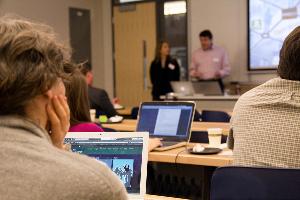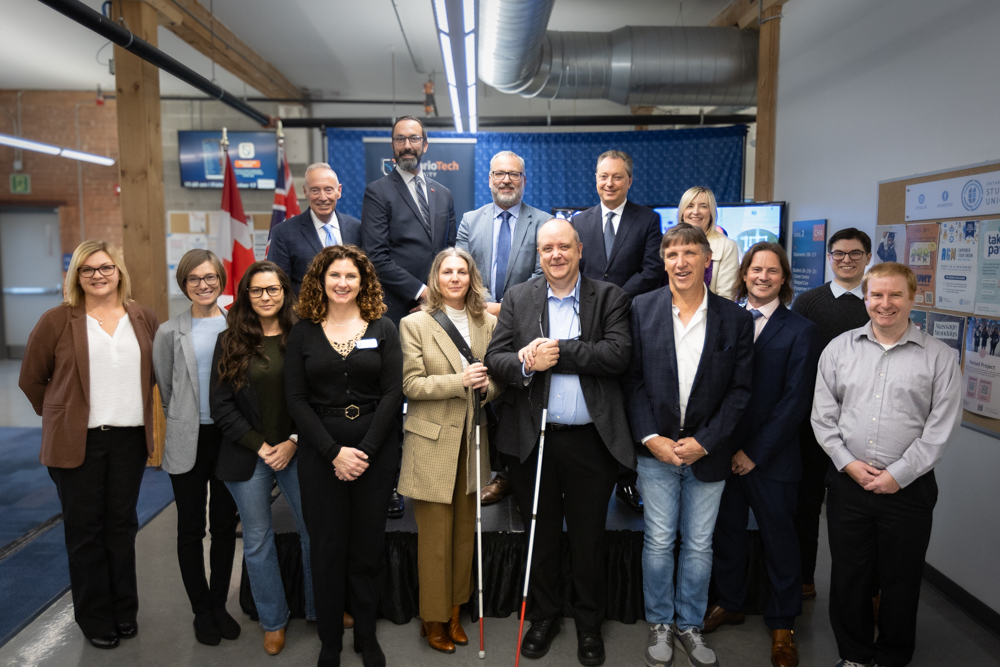Humanities and technology connect at UOIT boot camps
October 24, 2011

The University of Ontario Institute of Technology (UOIT) combined humanities and technology during two boot camps hosted by the university’s Office of Research Services and the faculties of Science and Social Science and Humanities (FSSH) on October 21. The boot camps were the prelude to the main event, THATCamp - The Humanities and Technology Camp, held the following day.
“This event really embodies UOIT’s commitment to interdisciplinary collaboration,” said Dr. Christopher Collins, assistant professor, Faculty of Science, SHARCNet research chair in Information Visualization and boot camp co-ordinator. “The THATCamp idea itself is quite innovative – bringing together humanities and computing. The boot camps have provided UOIT with opportunity to showcase its expertise and leadership in this developing field.”
The theme of the boot camps was to bring computational tools, particularly interactive data graphics and visualizations, together with the data and problems that humanities and legal scholars have. The sessions provide experts in a particular field to share some skills and knowledge with researchers, professors and graduate students who came from the GTA and as far away as Michigan, New York and Kentucky. The boot camps offered at UOIT were Text Analysis with Visualization Tools by Dr. Collins and Uncovering the Hidden Storylines in Digital Data Analysis by Dr. Tess Pierce, assistant professor, FSSH and John Fentum, Resolution Research & Marketing.
THATCamp, held at Ryerson University, brought together researchers and scholars from the GTA and beyond. It consisted of a loosely organized workshop where the participant-driven agenda focused on finding synergies, discussing pressing research challenges, and developing relationships between people generally interested in the relationship of humanities and computing. Other participating universities included Brock University, OCAD University, University of Toronto and the University of Western Ontario.



